
Find information on how to make a Protected Disclosure under the external procedures in place in the HEA.
Institute of Technology Carlow: Supporting Family Carers Across Ireland
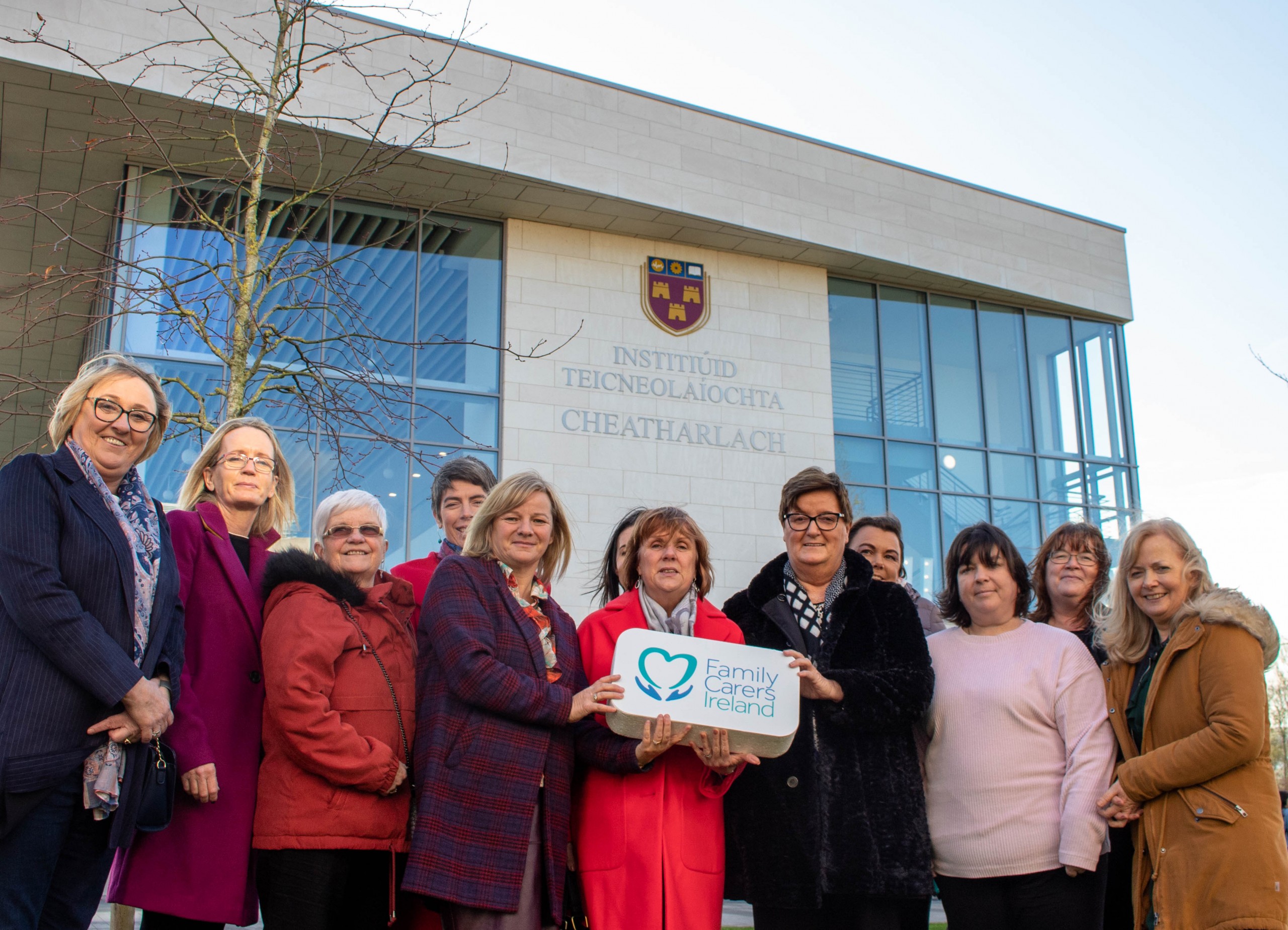
Who we are
Institute of Technology Carlow is one of the leading higher education institutions in Ireland for the provision of undergraduate and postgraduate programmes to ‘non-standard’ student cohorts, including mature students and lifelong learners. Within an increasingly diversified and growing higher education landscape, Institute of Technology Carlow has transformed over the past decade. Our Institute continues to be shaped by the many talented individuals and groups who have a profound belief in the public value of higher education institutions for the economy, for health and for changes in the lives of citizens and communities. Our vision for our future is one of diversity, connectedness and responsiveness in all that we do.
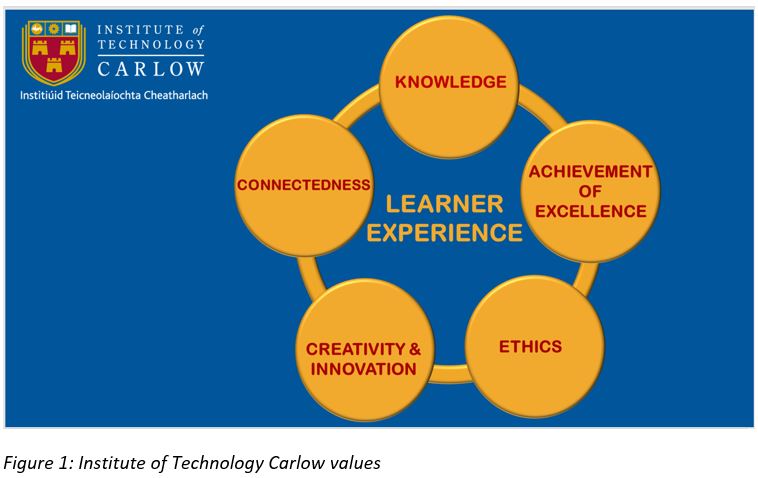
What we did
Institute of Technology Carlow partnered with Family Carers Ireland (FCI) in 2018 to develop and deliver a Certificate in Family Caring for family carers throughout Ireland. Family Carers Ireland supports the more than 355,000 family carers who care for loved ones such as children or adults with disabilities, frail older people, the terminally ill or those suffering from chronic illnesses or addiction.
The programme provides access to a third-level programme to family carers who are often from low-income backgrounds. In addition, family carers in receipt of the Carer’s Allowance are only allowed to work a maximum of 18.5 hours per week, which limits their potential income. Therefore, funded part-time third-level opportunities, such as the Certificate in Family Caring, are the only viable higher education options for most family carers. This funded six-week programme was delivered in nine different regions around the country in 2019/2020.
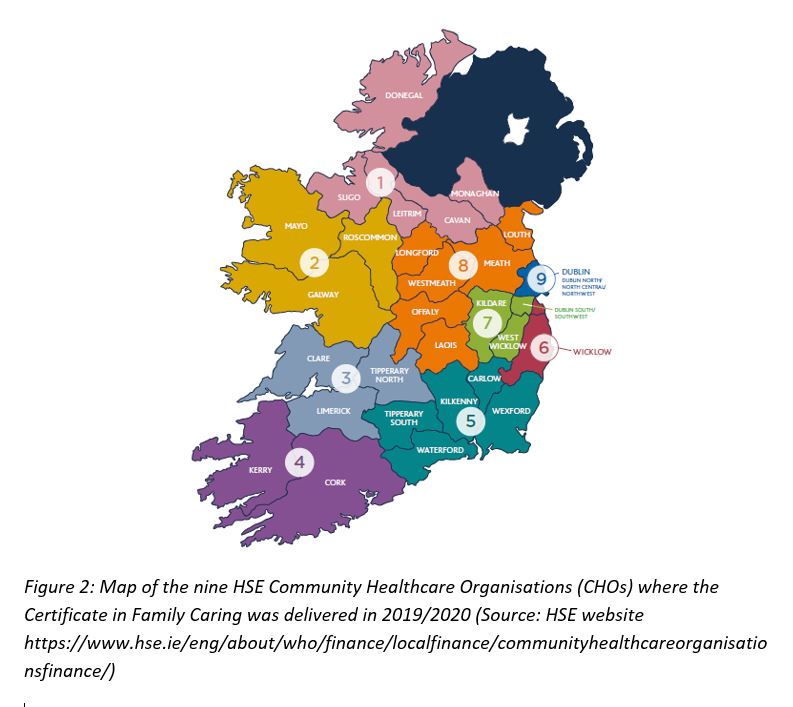
Impact achieved
The Certificate in Family Caring was developed to provide family carers with the skills they need to care safely and confidently for a loved one at home. The project has nurtured an inclusive and positive environment amongst learners. The course has empowered participants to engage in third-level education, giving them renewed confidence in themselves, their skills and their knowledge. A total of 162 people completed the course with 94% of these entering higher education for the first time. The first 61 students completed the course in a face-to-face format, and the remaining 101 completed it online due to COVID-19 restrictions. All course participants were invited to complete evaluation forms with over 83% of respondents rating the course as excellent on four key aspects in both face-to-face and online delivery modes. Almost all respondents agreed or strongly agreed that the programme met their expectations and gave them new skills or insight, such as self-care techniques to support them in managing the psychological and emotional aspects of their role. Carers identified the importance of self-care and connecting with other carers as being very beneficial aspects of participating in the course.
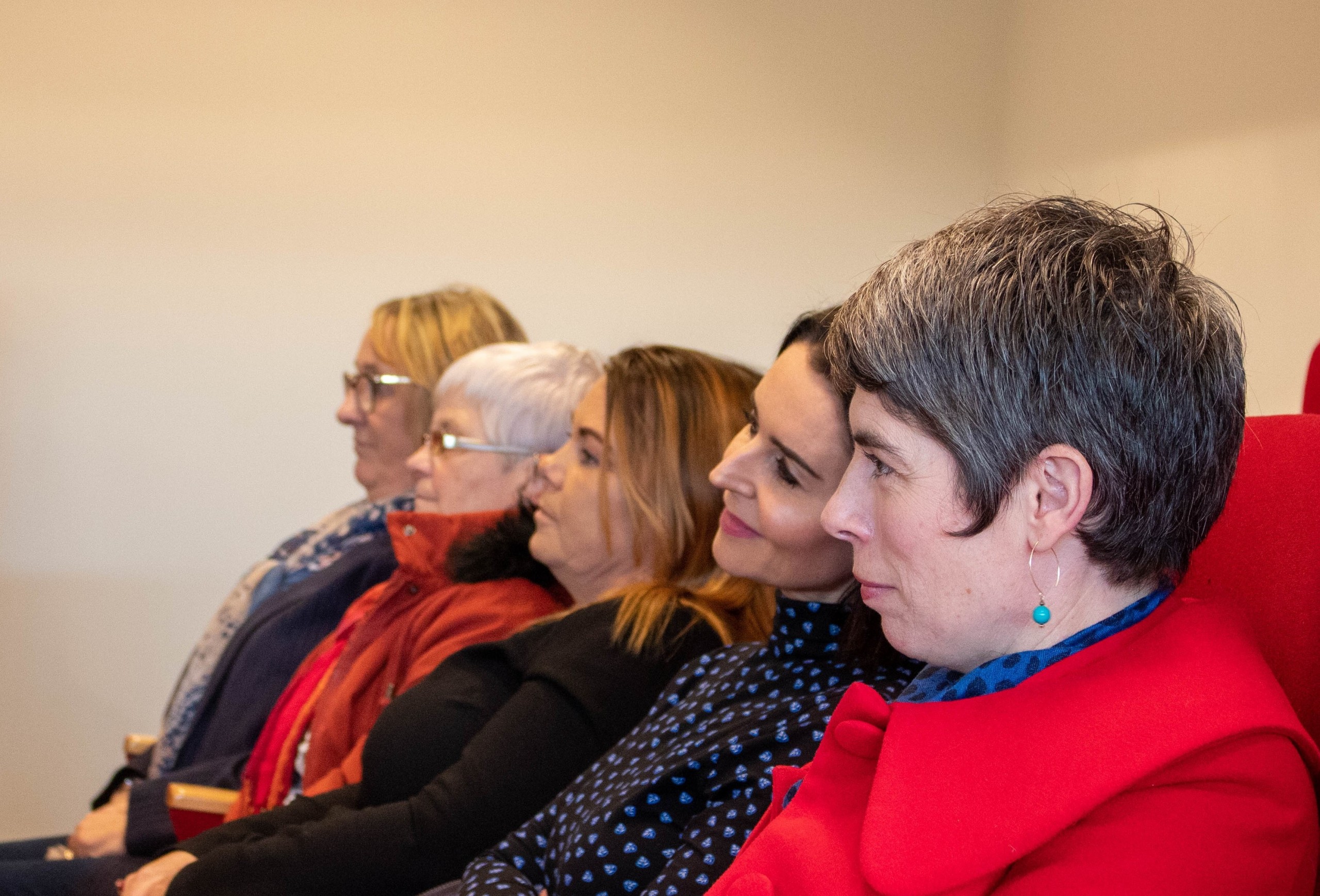
Participants also identified skills they learnt that were beneficial to them, including communication, understanding behaviours of concern, understanding legislation around caring and the rights of individuals, and understanding loss and grief. This is evident as one of the learners noted: “I felt it gave me a better understanding of how to incorporate the needs as well as the aspirations of the people I care for to provide the best care now and moving forward in their future through understanding legislation and advocacy and the importance of my own self-care to ensure I can provide the best care for them.”
The course allowed family carers to meet and provide peer support to one another, thereby reducing social isolation and improving social integration whilst enhancing their caregiving skills. The programme recognises the valuable role family carers play in the lives of their loved ones whilst formally accrediting this invaluable experience and wealth of knowledge.
Testimonies of students:
“I am so grateful to have had the opportunity to go on and do this level 6 Family Carers course and I really feel that it will help so many people who, like me, just needed someone to believe in me and I found that with Family Carers Ireland and IT Carlow.”
“The self care section was so good and gave me a whole new perspective on things.”
“Since starting this course, I have realised that I am doing so much as a carer and how capable I am at interagency collaboration. On a daily basis I wear such a wide variety of ‘caps’ in the sense that I am chemist, cook, cleaner, taxi driver, wife, healthcare assistant plus many more. I have realised how resilient I am and how I was always putting my needs last – but that has changed…”
“I also loved checking in with everyone as it made me feel like I wasn’t alone. We all connected and for me the course was a safe place to speak and not feel judged.”
“Self care, family care plan and coping with loss were 3 topics that not only hit home for me but gave me something to really think about. I’ve made improvements in both the care of myself and of those I care for based on this already with excellent results.”
“The course has given me a bigger insight into my role as a carer and my feeling of self-worth is improving. I love the fact that I am in college. Thank you.”
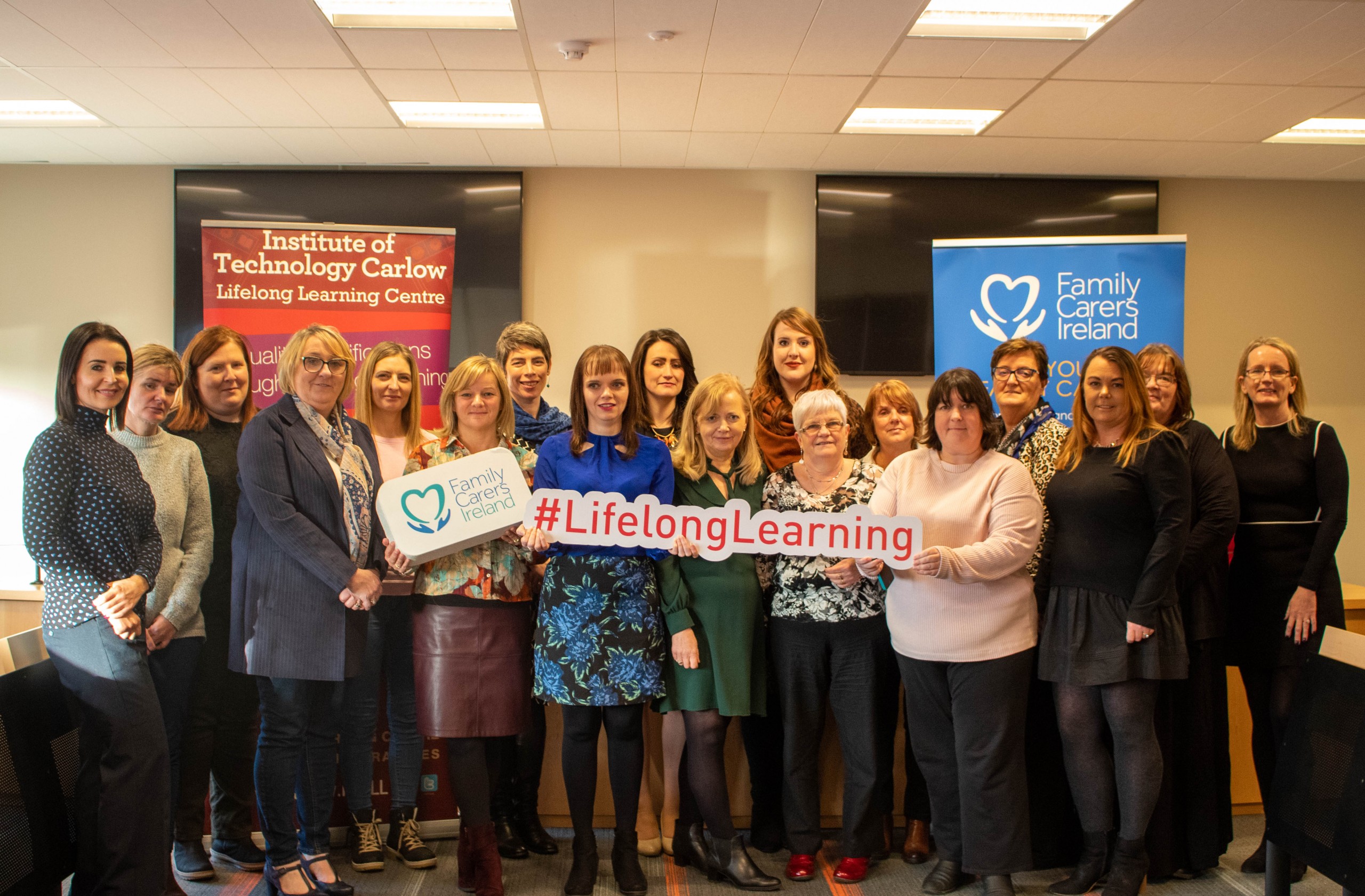
What we learned
By being proactive and seeking out the collaboration with Family Carers Ireland, we created the opportunity for learners to enter higher education for the first time. By co-creating the programme, it was tailor made to ensure it was relevant to the targeted learners. Our flexibility in the delivery was essential as these cohorts of the population often have other commitments during normal 9 to 5 hours or travelling to the institution may be difficult. We fostered the creation of communities of practice that created the conditions for connectedness with the community as this is vital for the long-term success of the programme. We also focused on the use of micro-credentials as we believe they have the potential to foster continuous learning, to fill the knowledge and skills gap, to increase the efficiency of higher education systems, and to reach a diverse group of learners.